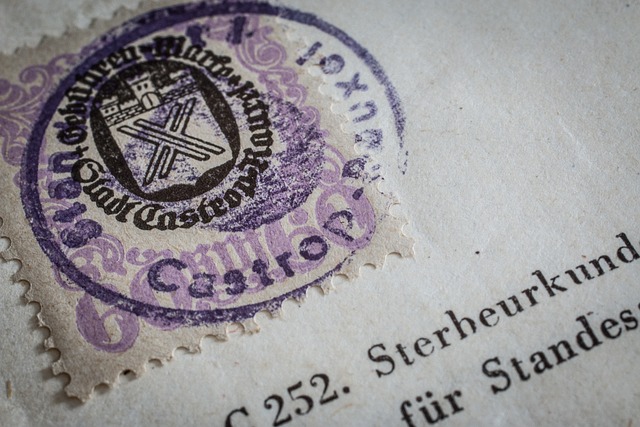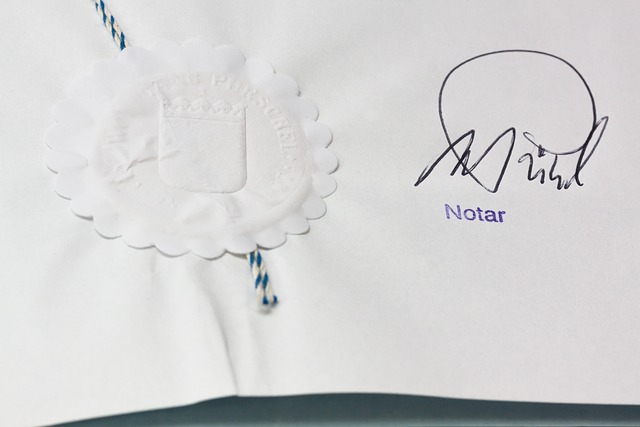Notarised translation services UK are essential for accurate and legally compliant document translations, especially in international business and legal contexts. These services ensure that documents, particularly contracts, maintain their authenticity and integrity across different languages and jurisdictions. With a focus on precision and expertise, professional translators navigate complex legal terminology and cultural differences to meet the strict standards set by the UK's Ministry of Justice. Advanced technologies are increasingly supporting these processes, improving efficiency and accuracy while maintaining the critical aspects of notarised translations.
In the intricate world of international business, legal precision is paramount. When it comes to submitting contracts, especially across borders, notarised translation services in the UK play a pivotal role in ensuring document integrity and legality. This comprehensive guide delves into the significance of notarised translations for official documents, exploring best practices, common challenges, and the evolving landscape of legal translation with digital tools. From understanding the necessity to choosing the right translator, this article is your compass through the complex journey of notarised translation services in the UK.
- Understanding Notarised Translations: Why They're Essential for Legal Documents
- The Role of Professional Translators in Contract Submission
- UK Legal Requirements for Notarised Translation Services
- Ensuring Accuracy and Compliance: Best Practices for Contract Translation
- Common Challenges in Notarised Contract Translations and How to Overcome Them
- Choosing the Right Translator: Key Considerations for Official Submissions
- Future Trends in Legal Translation: Digital Tools and Their Impact
Understanding Notarised Translations: Why They're Essential for Legal Documents

In legal circles, notarised translations hold significant importance, especially when it comes to international transactions and official document submissions. These professional translation services ensure that every detail in a contract or legal agreement is accurately conveyed across different languages. The UK, being an integral part of global business networks, heavily relies on notarised translation services to facilitate smooth legal processes.
When dealing with contracts, a notarised translation goes beyond simple word-for-word interpretation. It involves a rigorous process where a qualified professional translator, often a notary public, verifies the authenticity and legal equivalence of the translated document. This is crucial for avoiding potential pitfalls in international law, ensuring that rights, obligations, and stipulations are precisely reflected in the target language.
The Role of Professional Translators in Contract Submission

Professional translators play a pivotal role in ensuring accurate and legally sound submissions, especially when dealing with notarized contracts. In the UK, where multilingual businesses and international legal frameworks are prevalent, specialized translation services are indispensable. These professionals possess not only linguistic expertise but also a deep understanding of legal terminology and procedures, making them essential for maintaining compliance throughout the translation process.
When it comes to notarized documents, precision is paramount. Professional translators meticulously handle these contracts, ensuring that every clause and detail is conveyed accurately in the target language. They stay abreast of legal nuances and cultural differences across jurisdictions, guaranteeing that translated documents are legally binding and acceptable for official submissions.
UK Legal Requirements for Notarised Translation Services

In the United Kingdom, the demand for professional notarised translation services is paramount, especially when it comes to legal documents. The UK has specific legal requirements for such translations to ensure accuracy and authenticity. When dealing with official submissions, whether it’s for international business transactions or immigration purposes, having a reliable and accurate translation is crucial.
Notarised translation services in the UK must adhere to strict guidelines set by the Ministry of Justice. These include verifying the original document’s integrity, ensuring the translator’s competence, and confirming their understanding of both the source and target languages. The process involves a notary public or legal professional certifying that the translation is a true and accurate representation of the original document, making it admissible as evidence in UK courts.
Ensuring Accuracy and Compliance: Best Practices for Contract Translation

When it comes to legal translations, ensuring accuracy and compliance is paramount, especially for notarised contracts intended for official submissions. Opting for professional notarised translation services UK guarantees that every detail is meticulously handled. Skilled translators with expertise in legal terminology and cultural nuances play a pivotal role in preserving the exact meaning and intent of the original document.
Best practices include providing comprehensive context to translators, who should be well-versed in both the source and target languages. Strict quality assurance processes, such as proofreading and editing by peers or subject matter experts, are essential to catch any potential errors. Additionally, staying up-to-date with local legal requirements and regulations ensures compliance, which is crucial when submitting official documents.
Common Challenges in Notarised Contract Translations and How to Overcome Them

In the realm of legal translations, particularly for notarised contracts intended for official submissions, challenges abound. One significant hurdle is the preservation of authenticity and legal validity across languages. Contracts often contain nuanced terminology and complex structures that demand precision in translation to avoid misinterpretation or potential legal disputes. Additionally, the notarial act itself—which involves verifying the identity of signatories and attesting to the document’s truthfulness—must be meticulously replicated in the translated version to maintain its official standing.
Overcoming these challenges requires engaging specialized notarised translation services UK. These services employ translators with legal expertise who understand the intricacies of both the source and target languages. They utilize advanced tools for consistency and quality control, ensuring accuracy and fluency in the final translated document. Furthermore, staying abreast of international legal standards and maintaining a robust quality assurance process are vital to guarantee that translations meet or exceed legal requirements, thereby facilitating seamless official submissions.
Choosing the Right Translator: Key Considerations for Official Submissions

When it comes to legal translations, especially for official submissions, choosing the right translator is paramount. In the UK, where notarised translation services are in high demand, several key considerations come into play. Firstly, ensure the translator possesses not only native-level proficiency in both languages but also formal legal training or experience. This guarantees an understanding of technical jargon and legal nuances, which can be crucial for accuracy.
Secondly, verify that the translation service adheres to professional standards and quality control measures. Look for certifications such as ISO 17100, which ensures consistent high-quality output. Additionally, consider the translator’s familiarity with the specific type of document you’re translating. For instance, contracts often require a deeper understanding of contractual language and local legal practices than general documents do.
Future Trends in Legal Translation: Digital Tools and Their Impact

The future of legal translations, particularly for official submissions like notarised contracts, is being shaped by digital tools and technologies. Advanced machine translation (MT) platforms are becoming increasingly sophisticated, offering faster and more accurate results. These tools can significantly streamline the process of translating legal documents, reducing turnaround times and costs for individuals and businesses alike. Artificial Intelligence (AI), when combined with human expertise, enhances precision and ensures context-appropriate translations, which is crucial in complex legal domains.
In the UK, as demand for notarised translation services grows, digital innovation plays a pivotal role. These tools enable translators to work more efficiently, managing larger volumes of text while maintaining quality. Additionally, they facilitate collaboration between translators, reviewers, and clients, enhancing project management and communication. With ongoing advancements, we can expect even more sophisticated solutions, further simplifying the process for legal professionals and ensuring that notarised translations meet the highest standards of accuracy and reliability.
When submitting legal documents internationally, especially within the UK, engaging professional notarised translation services is paramount. These translations ensure accuracy, maintain legality, and facilitate seamless communication across borders. By adhering to best practices and choosing qualified translators, individuals and businesses can navigate complex legal landscapes with confidence. In an era driven by digital tools, the future of legal translation promises enhanced efficiency, accessibility, and precision, further streamlining official submissions.
